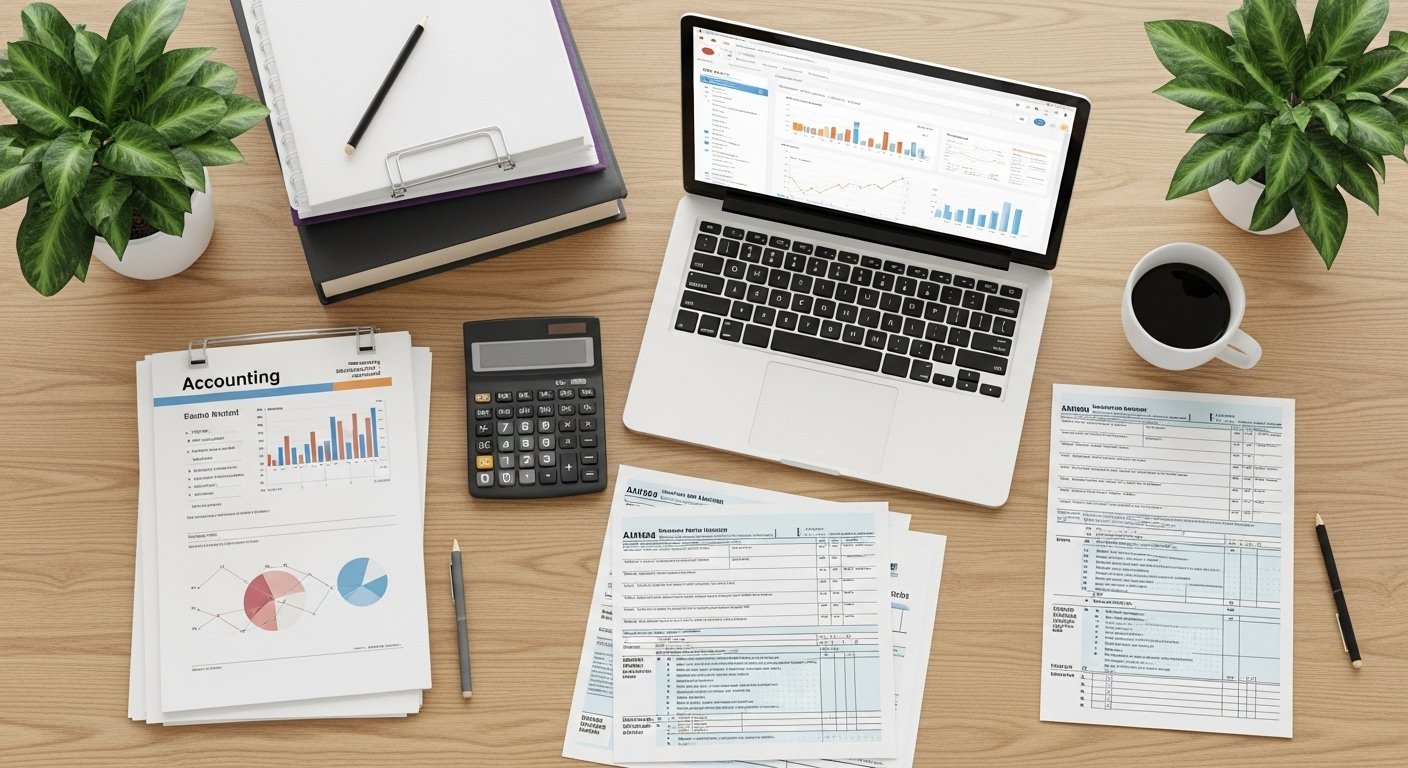Running a business in Calgary is demanding, and bookkeeping often takes a backseat to more urgent tasks. But small errors in your books can lead to costly consequences—missed deductions, CRA penalties, or inaccurate financials. Whether you’re a solo entrepreneur or leading a growing team, here are seven of the most common bookkeeping mistakes, how they hurt your business, and how to steer clear of them.
1. Mixing Personal and Business Finances
Why it matters:
Combining personal and business transactions makes tax time a nightmare. It clouds your financial picture, increases audit risk, and can lead to disallowed expenses.
How to dodge it:
- Open a dedicated business bank account and credit card.
- Always pay personal expenses separately.
- Use bookkeeping software that links only to business accounts.
Pro tip: Set a monthly reminder to review your account activity and ensure everything is properly separated.
2. Falling Behind on Bookkeeping
Why it matters:
Bookkeeping procrastination leads to missing invoices, lost receipts, and a rush to organize chaos when taxes are due. It also makes it harder to understand your cash flow and make smart decisions.
How to dodge it:
- Block out 30 minutes each week to stay on top of your books.
- Use cloud accounting software to automate imports and categorize expenses.
- If you’re swamped, consider outsourcing monthly reconciliations.
3. Failing to Organize Receipts and Records
Why it matters:
The CRA requires clear documentation for expenses. If you can’t prove a claim, you risk having it denied—even if it’s legitimate.
How to dodge it:
- Use mobile apps to snap and store receipts immediately.
- Keep digital copies of all invoices, contracts, and important paperwork.
- Back everything up to both cloud storage and a physical drive.
4. Skipping Monthly Bank Reconciliations
Why it matters:
Reconciling your bank and credit card accounts helps catch errors, missed income, or duplicate transactions before they snowball.
How to dodge it:
- Set a monthly calendar reminder to reconcile.
- Use software that auto-matches transactions to save time.
- Investigate and resolve any mismatches as soon as they appear.
5. Misclassifying Expenses
Why it matters:
Placing expenses in the wrong categories skews your financial reports and can reduce your tax savings. It also makes year-end reviews more difficult.
How to dodge it:
- Create a well-organized chart of accounts with clear categories.
- Set automation rules for recurring purchases.
- Review your expense breakdown with your bookkeeper monthly.
6. Missing CRA Tax Deadlines
Why it matters:
The Canada Revenue Agency imposes interest and penalties for late filings or payments. Deadlines for GST/HST, payroll, and income taxes vary depending on your business structure.
How to dodge it:
- Track your specific tax deadlines (e.g., April 30 for tax payments, June 15 for filing if self-employed).
- Set automated reminders in your calendar.
- Use CRA’s “My Business Account” to monitor obligations and schedule payments.
7. Relying Solely on Spreadsheets
Why it matters:
While Excel might feel familiar, it’s prone to errors, doesn’t sync with banks, and lacks audit trails. This can lead to inaccurate reporting and time wasted fixing mistakes.
How to dodge it:
- Switch to cloud-based bookkeeping platforms like QuickBooks, Wave, or Xero.
- Use spreadsheets only for occasional planning or one-off calculations.
- Back up files regularly and control document versions.
Should You DIY or Hire a Bookkeeper?
| Your Situation | Go DIY | Hire a Pro |
|---|---|---|
| Simple operations, low volume | ✅ Cloud tools work fine | ✅ Monthly review by pro recommended |
| Complex tax (GST, payroll, contractors) | 🚫 High risk of errors | ✅ Bookkeeper essential |
| Short on time or bookkeeping knowledge | 🚫 Time drain | ✅ Outsourcing saves stress |
Pro tip: Even if you manage books yourself, having a professional review your records quarterly can catch small issues before they become big problems.
FAQ – Calgary Entrepreneurs Ask
Q: When do I need to register for GST/HST?
Once your revenue hits $30,000 over four consecutive calendar quarters, registration is mandatory.
Q: How long should I keep business receipts?
At least six years from the end of the tax year they apply to.
Q: What happens if I file taxes late?
Expect a 5% penalty on your balance owing, plus 1% for each full month you’re late (up to 12 months).
Q: Can I use cash accounting?
Sole proprietors can in some cases, but corporations typically must use accrual accounting unless CRA grants an exception.
Q: Do I need software, or is Excel enough?
Software is far safer and more efficient. It saves time, syncs data, and reduces human error.
Quick-Win Checklist: Bookkeeping Essentials
- Open separate business bank and credit accounts
- Schedule weekly bookkeeping time
- Store receipts digitally
- Reconcile accounts monthly
- Track CRA deadlines and automate reminders
- Review expenses monthly
- Use cloud accounting tools
Let Vision Accounting Keep You on Track
Bookkeeping doesn’t have to be a headache. Whether you’re just starting out or scaling up, Vision Accounting helps Calgary entrepreneurs like you stay organized, compliant, and confident in your finances.
Ready to turn clarity into growth? Book your free consultation with Vision Accounting today. We’ll help you clean up your books, avoid costly mistakes, and stay one step ahead of the CRA.






